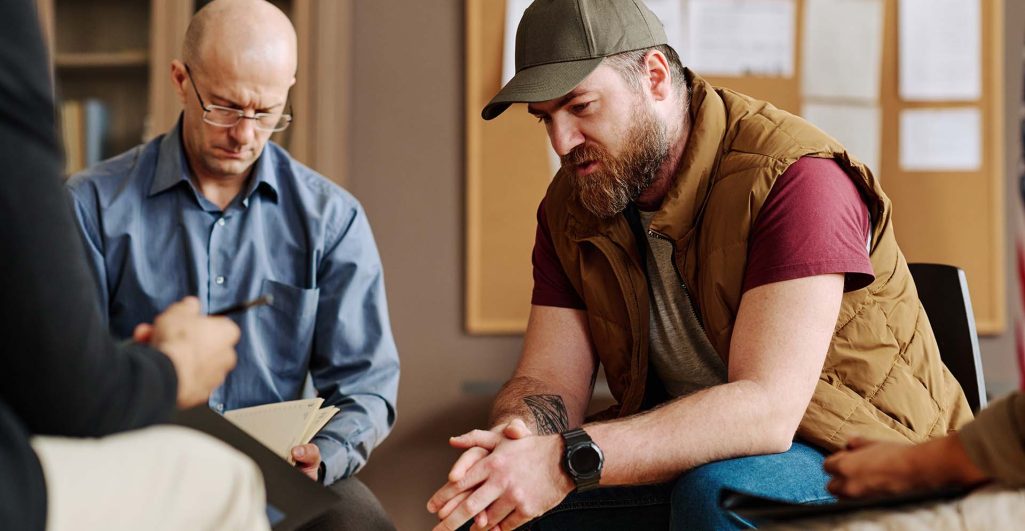Nobody plans on becoming addicted to crack cocaine. For some, it starts as a way to escape stress, trauma, or painful feelings. Others try it believing addiction won’t happen to them – a thought shaped by something called optimism bias. It’s the same thought habit that makes us think things like car accidents, health problems, or financial struggles are things that “happen to other people, not me”.
The reality, however, is different. Crack takes hold quickly, and what seems like control at first can spiral into dependence before you realise it. In 2022, 857 people in England and Wales lost their lives to cocaine use, many involving crack. These figures are stark reminders that behind every statistic is a real story of struggle. Crack cocaine dependence is a health condition that requires understanding, compassion, and the right support. Read on to find out how it develops and how to get help.
What is crack cocaine?
Crack cocaine is a stimulant that offers an intense but short-lived high. It is made by processing cocaine powder with substances such as baking soda or ammonia to form crystals. Unlike powdered cocaine, which is typically snorted, crack is usually smoked in a pipe or injected directly into a vein.
What is crack use disorder?

Addiction to crack cocaine is a health condition where a person becomes physically and psychologically reliant on the drug.
When taken, it stimulates a euphoric feeling that lasts five to ten minutes, closely followed by a powerful comedown. Because it enters the bloodstream and brain almost instantly, the effects are felt within seconds. It is this cycle of intense highs and lows that makes crack cocaine so addictive.
The drug attacks the brain’s reward system, causing intense cravings that are so powerful it becomes difficult to prioritise any other thoughts. The compulsion to use often causes people to ignore responsibilities, lose interest in hobbies and continue to take crack even if it poses a threat to their health.
Can you stop taking crack before dependence develops?
The rush from crack cocaine doesn’t last long, and that’s what makes it so dangerous. People often feel the need to take a higher dosage almost straight away to restore the feeling of elation, and very quickly, the body starts to depend on it to avoid the fatigue and sadness that accompanies the comedown. When the drug isn’t used, the crash can be overwhelming; even if someone has the intention to stop, intense cravings can be impossible to resist without intervention.
For many, using crack isn’t only about chasing a high; it becomes a way of coping with stress or painful memories. That’s why dependence on crack isn’t just physical; it’s a form of self-soothing, which makes it even harder to stop when times are tough.
Signs and symptoms of crack cocaine addiction
Recognising the signs of crack use disorder can be difficult, especially early on, when someone can hide their behaviour and make it appear like nothing is wrong. However, over time, these become harder to hide.
In yourself, signs may include:
- Constant thoughts about the next hit and struggling to focus on anything else
- Intense cravings and repeated failed attempts to stop
- Sleep disruption, from insomnia to long periods of exhaustion
- Mood swings, anxiety, paranoia or hallucinations
- Neglecting work, family or financial responsibilities
- Feelings of guilt, shame or secrecy about use
In someone else, look out for:
- Sudden and unexplained financial problems, borrowing money or selling possessions
- Burn marks on lips or fingers from crack pipes
- Noticeable weight loss, dilated pupils and hyperactivity, followed by comedowns
- Mood swings or paranoia
- Withdrawing from loved ones
- Displaying secret or unusual behaviour
- A change in priorities, such as poor work performance, neglect of personal hygiene and missed appointments
- Drug paraphernalia around their living space
Recognising these signs can be painful and difficult to admit or approach. However, acknowledging that crack use has become unmanageable is the first step towards taking back control of your life. If you are ready to tackle crack cocaine cravings, we are here to support you through the next steps.
The dangers of crack cocaine addiction

The toll of reliance on crack cocaine goes far beyond the immediate high. It affects the body, mind, and social well-being in ways that can destroy a person’s life without intervention.
Physical health risks
Heart problems
Crack puts enormous strain on the heart from the very first use. It speeds up your heart rate and raises blood pressure, increasing the risk of heart-related emergencies, such as cardiac arrest, in users of all ages and levels of health.
Seizures and brain impact
Taking high doses of crack can overpower the nervous system and trigger seizures. If the drug continually enters the brain, it can cause irreparable damage to the areas responsible for decision-making, memory, and impulse control.
Lung damage
Smoking crack can cause significant damage to the respiratory system. In some cases, people develop a condition known as ‘crack lung‘, where the trauma is so severe that it can be life-threatening.
Mental health impact
Severe depression and anxiety
The crash after using crack often leaves people feeling extremely low. Over time, this can spiral into depression.
Paranoia and psychosis
Crack cocaine can trigger hallucinations, delusions, or extreme suspicion, which strains relationships and sometimes leads to dangerous behaviour.
Aggression and impulsivity
Heightened irritability and poor impulse control can result in conflict, violence, or legal problems.
Social and emotional effects
- Strained or severed relationships with family and friends
- Financial hardship, debt, or crime
- Job loss, housing instability, and isolation
- Feelings of guilt, shame, and hopelessness (often prompting further use)
Overcoming addiction to crack cocaine
Crack cocaine dependence doesn’t just affect the moments when the drug is being used; it gradually reshapes every part of life. Over time, responsibilities and connections with others can all be pushed aside. This can create a sense of isolation that is hard to put into words and makes you feel as if nobody understands the relationship you have with the drug.
Acknowledging the reality of your reliance on crack cocaine is a vital step forward. It allows you to see crack for what it is: a harmful substance that alters brain chemistry, deters healthy healing and causes desires worse than most people imagine.
Understanding this helps you realise that others have felt the same struggles and can offer guidance, creating space for connection and healing together.
The first step
At The Haynes Clinic, we understand the weight of that first step. Our team is here to provide not only medical expertise but also genuine compassion and support from people who know recovery is possible. You don’t have to face this alone; healing begins the moment you decide you no longer want crack cocaine to control your life.
Reach out to us today to find out more about the recovery process and how we can help you take back your life.
Crack cocaine addiction FAQs
Is crack more addictive than powder cocaine?
Yes. Because it’s smoked, crack reaches the brain in seconds, producing a faster, more intense high. This rapid effect makes it more addictive than powder cocaine, with cravings often beginning after just one or two uses.
Can you overdose on crack cocaine the first time?
Yes. Crack can cause dangerous spikes in blood pressure and heart rate. Even a single use can trigger seizures, stroke, or a heart attack, especially if mixed with alcohol or other drugs.
Why do people become paranoid on crack cocaine?
Crack overstimulates the brain’s dopamine system, which can distort perception and thinking. This can lead to paranoia, suspicion, and in some cases, full psychosis.
How does crack cocaine affect families?
Addiction rarely impacts just one person. Families often face emotional distress, financial strain, broken trust, and the pain of watching someone they love change under the grip of crack cocaine. Support for families is just as important as treatment for the individual.
